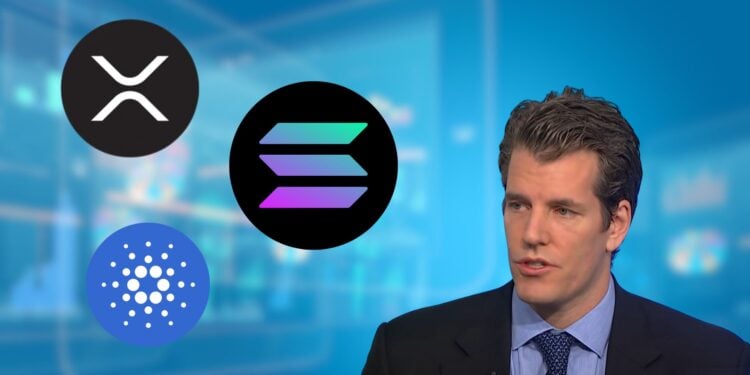- Tyler Winklevoss criticizes the inclusion of XRP, SOL, and ADA in the U.S. Crypto Strategic Reserve, arguing that only Bitcoin meets the standards of a true store of value, comparable to gold.
- He believes strategic reserves should only hold “hard money” assets, noting that while XRP, SOL, and ADA have utility, they lack the long-term stability required for national reserves.
- Winklevoss’s stance highlights the ongoing debate between crypto as a utility vs. a store of value, with Bitcoin positioned as the only asset suitable for long-term economic security.
Tyler Winklevoss, co-founder of Gemini exchange, recently criticized the inclusion of XRP, Solana (SOL), and Cardano (ADA) in the U.S. Crypto Strategic Reserve. While acknowledging their popularity, Winklevoss believes only Bitcoin meets the rigorous standards necessary for a strategic reserve. Let us dive into his reasoning.
Who is Tyler Winklevoss?
Tyler Winklevoss is an American entrepreneur and investor, best known as a co-founder of the cryptocurrency exchange Gemini. Along with his twin brother Cameron, Tyler has become a prominent figure in the cryptocurrency space, advocating for the growth and regulation of digital assets. The Winklevoss twins are also early investors in Bitcoin and other cryptocurrencies, helping shape the landscape of the digital currency industry.
Higher Standards for Strategic Reserves
Winklevoss’s criticism of XRP, SOL, and ADA is rooted in his belief that strategic reserves require a higher standard. According to him, a strategic reserve should only include “hard money”—assets that have a proven track record of stability and value retention, similar to gold.
He also noted that while XRP, SOL, and ADA are widely traded and meet Gemini’s listing criteria, they do not yet have the long-term stability required for a national reserve. However, he argued that Bitcoin, with its decentralized nature and established role as a store of value, is the only cryptocurrency that qualifies to meet these standards.
Final Thoughts
In conclusion, Winklevoss’s remarks highlight a key distinction in the cryptocurrency space between assets that serve as useful tools and those that are reliable stores of value. While XRP, SOL, and ADA have utility, they lack the proven track record and stability that Bitcoin has demonstrated. Needless to say, it will be interesting to see how the reserve evolves and whether it influences the long-term impact of these assets, potentially solidifying them as key players in the global economy.














